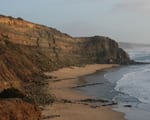Reporter Ben Kamisar of the Austin Statesman has covered the research of SMU religious studies expert Mark A. Chancey. A new report by Chancey, “Reading, Writing & Religion II,” found that most of the 60 public school districts in Texas that offer Bible study courses aren’t meeting a 2007 state law mandating that the courses be fair as well as academically and legally sound.
Chancey prepared the report for the Austin-based education watchdog group Texas Freedom Network. His study uncovered bias, factual errors and insufficient curriculum standards in Texas public school Bible courses. An SMU Religious Studies professor, Chancey recommends the Texas State Board of Education develop Bible course curriculum standards and the Texas Education Agency be allowed funds for a teacher training program.
“As a biblical scholar and especially as a parent, I want our state’s public schools to take the study of the Bible’s influence as seriously as they do the study of science or history,” Chancey told The Dallas Morning News. “Academically, many of these classes lack rigor and substance, and some seem less interested in cultivating religious literacy than in promoting religious beliefs. Their approach puts their school districts in legal jeopardy and their taxpayers in financial jeopardy.”
Chancey, a professor in SMU’s Dedman College of Humanities and Sciences, has devoted considerable attention to the constitutional, political and academic issues raised by religion courses in public schools.
EXCERPT:
Ben Kamisar
Austin Statesman
Among the 60 school districts that took advantage of a 2007 state law allowing them to teach Bible courses as a separate elective, a new study released Wednesday revealed widespread failure to comply with the law that requires the courses to be fair and unbiased.“The bottom line is that (public schools) are not supposed to promote any particular religious view over other religious views, nor can they promote religion or non-religion over the other,” said Mark Chancey, the Southern Methodist University professor who authored the study for the Texas Freedom Network. The organization monitors activities of the so-called religious right in Texas.
Chancey examined the 57 school districts and three charter schools offering Bible courses in the 2011-12 school year to see whether guidelines established by House Bill 1287 in 2007 improved the impartiality of Texas Bible courses. The legislation sought to regulate courses for the first time. His research identified just 11 schools he considered “most successful,” defined as largely constitutional and academically rigorous.
The bill provided an outline for districts offering elective Bible courses on the condition that they were religiously neutral and for the purpose of educating students on the Bible’s historical and cultural influence.
“We knew that this was going to be an argument,” said Rob Eissler, the former chair of the state House Public Education Committee. “So the approach we took on the Public Education Committee was to make the Bible study course a real course (and) the TEA (Texas Education Agency) would develop a curriculum for it.”
But according to a letter signed by Eissler and two other colleagues in 2008 to the TEA, the State Board of Education proposed education standards that were too vague and did not mention any specific religious texts. Withoutspecific curriculum requirements, the Texas Freedom Network said that the bill was toothless and failed to adequately prepare teachers to teach an unbiased curriculum.
“The Legislature actually got ahead of a very thorny and sometimes controversial issue and passed very strong guidelines to ensure that these courses are rigorous and constitutional,” said Kathy Miller, president of the TFN Education Fund. “But clearly, based on Professor Chancey’s research, too many districts are ignoring those guidelines, so they don’t have teeth.”
Follow SMUResearch.com on Twitter.
For more information, www.smuresearch.com.
SMU is a nationally ranked private university in Dallas founded 100 years ago. Today, SMU enrolls nearly 11,000 students who benefit from the academic opportunities and international reach of seven degree-granting schools. For more information see www.smu.edu.
SMU has an uplink facility located on campus for live TV, radio, or online interviews. To speak with an SMU expert or book an SMU guest in the studio, call SMU News & Communications at 214-768-7650.



 Study finds Jurassic ecosystems were similar to modern: Animals flourish among lush plants
Study finds Jurassic ecosystems were similar to modern: Animals flourish among lush plants SMU contributes fossils, expertise to new Perot Museum in ongoing scientific collaboration
SMU contributes fossils, expertise to new Perot Museum in ongoing scientific collaboration 100 million-year-old coelacanth discovered in Texas is new fish species from Cretaceous
100 million-year-old coelacanth discovered in Texas is new fish species from Cretaceous Academic achievement improved among students active in structured after-school programs
Academic achievement improved among students active in structured after-school programs New study on kingship and sainthood in Islam offers a striking new historical perspective
New study on kingship and sainthood in Islam offers a striking new historical perspective Texas frontier scientists who uncovered state’s fossil history had role in epic Bone Wars
Texas frontier scientists who uncovered state’s fossil history had role in epic Bone Wars Observed! SMU’s LHC physicists confirm new particle; Higgs ‘God particle’ opens new frontier of exploration
Observed! SMU’s LHC physicists confirm new particle; Higgs ‘God particle’ opens new frontier of exploration